When we talk about the 'annual vaccination', we mean more than just administering a vaccine against the most common infectious diseases.
Before we can administer the vaccine, we carry out the annual health check. Even though your pet may seem healthy, there may be health problems that have gone unnoticed by the owner. After all, your animal cannot tell you if something is wrong. Animals (especially cats and rodents) are designed to show as little as possible that they are in pain. In nature, they would fall prey to predators. So as long as there are no clearly visible symptoms, a (starting) ailment might stay under the radar for a long time. With the annual health check we try to detect (starting) health problems as early as possible.
The vet will listen to the heart and lungs, among other things. They will examine the ears, eyes, fur and oral cavity. And by palpation (feeling) the vet will check the organs in the abdominal cavity, lymph nodes and thyroid gland (especially in cats). If abnormalities are found, they can be treated immediately or examined further.
In addition, attention is paid to nutrition and preventive care. Preventive care is a not to be underestimated part of taking good care of your pet! This includes, for example, proper dental care, maintaining a healthy body weight and fighting parasites. Obesity, for example, is also a common problem in pets.
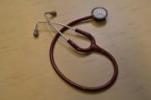
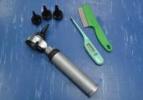
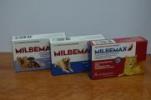
Only when your animal has been declared healthy (or the health problems found are not too serious) will we administer the vaccination. For some diseases or medications, the vaccination cannot be administered simultaneously, because the immune system does not respond sufficiently to the vaccine.
When choosing the vaccine, we not only follow the vaccination advice according to the latest guidelines of the Faculty of Veterinary Medicine in Utrecht, but we also adjust the vaccination to the lifestyle and environment of your pet. This way, your pet only gets the vaccinations he really needs. Vaccination is tailor-made.
The vaccines build up antibodies in the body and protect your pet against infectious diseases that occur in the Netherlands. These are infectious diseases that can make your pet seriously ill and can even be life-threatening. The vaccine stimulates the animal's natural defences so that protection is built up. However, no vaccination gives 100% protection. If your animal is still infected with the infectious disease against which it has been vaccinated, the course of the disease will be much less serious.
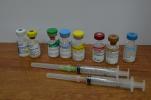
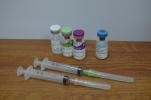
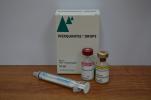
Some vaccinations must be given several times in a row (this repetition is called a 'booster') at a set interval in order to build up optimal protection. Over time, the protection gradually decreases. The length of time a vaccine is effective varies between pathogens and even between individuals.
We are sometimes asked if we can just give 'the shot', because the owner says that the animal is fine or has recently been to the vet. Unfortunately, this is not possible and even not allowed! We are only allowed to give vaccinations to healthy animals. And even animals that have been recently vaccinated can have a disease in the meantime. If an animal is sick and is vaccinated, it could mean that the immune system does not respond well to the vaccine and/or the animal becomes sick(er).
In addition, many owners assume that animals that never go outside and/or older animals do not need to be vaccinated. Nothing could be further from the truth. Animals that never go outside can also become ill. Germs (but also parasites) can be brought into the house through air, shoes, clothing, hands, etc.
It is sometimes thought that vaccinating older animals is no longer necessary or useful. But the resistance of older animals decreases, making them more susceptible to pathogens and the body less able to react adequately when they become ill. Very young and older animals are, just like young children and older people, much more susceptible to infections than animals (and people) in the prime of life.